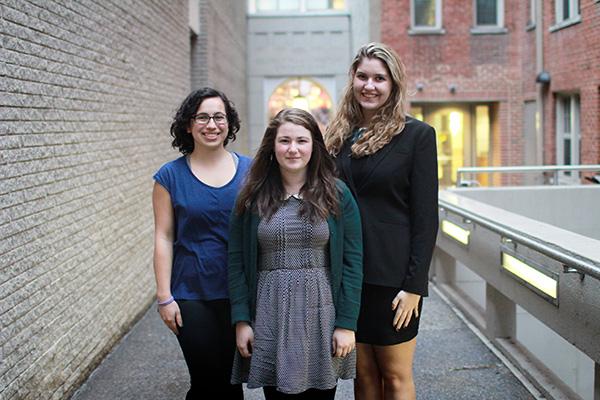Updated: Feb. 2, 2015 at 6:49 p.m.
All new GW students could be required to learn how to respond to an instance of sexual violence by as early as this summer, Student Association and Students Against Sexual Assault members said.
The groups are pushing the University to make sexual violence training a mandatory part of Colonial Inauguration, said Omeed Firouzi, the SA’s student life committee chair. He said training would prevent future instances by making students aware of the different forms of sexual violence and GW’s resources early in their college experiences.
“When you’re a freshman, it’s the time when you’re starting to mature in your world views, and that’s a key time when you want to capture their attention and say, ‘Look, this is a serious issue and you can’t engage in this behavior,’” Firouzi said.
In past summers, CI has offered optional trainings and information sessions with the University Police Department. Student advocates said making the trainings mandatory would put more of a focus on prevention and bystander intervention on campus.
The University will “continue to present” sexual abuse topics at CI, but no further information is available at this time, University spokeswoman Maralee Csellar said. She declined to say whether GW has committed to making the trainings mandatory.
Title IX Coordinator Rory Muhammad said the University has not yet made a decision.
The key to successful training is to keep students engaged in the topic, said Scott Berkowitz, the director of the Rape, Abuse and Incest National Network.
“You’ve got to get people over their nervousness for talking about this issue in front of your friends and even people you don’t know,” Berkowitz said.
If CI trainings go forward the way campus leaders hope, sessions would include information from both University officials and student advocates, said Ariella Neckritz, co-president of Students Against Sexual Assault.
“We should debunk a lot of the myths, provide people with accurate information and stress the resources that are available,” Neckritz said. “It isn’t that sexual assault happens in a dark alleyway with a stranger, but it’s actually people you know who are the perpetrators.”
Some universities – such as the University of California, Los Angeles and Cornell University – have recently required freshmen to complete sexual assault training during orientation programs.
After last week’s release of the results of GW’s campus climate survey, in which 35 percent of LGBT students said they had experience unwanted sexual behavior, Allied in Pride plans to partner with the SA and SASA to present LGBT-specific training at CI.
“We must strive to create a sex-positive climate on campus that de-stigmatizes issues relating to sexuality and empowers LGBTQ victims of sexual violence to speak out and to seek justice without feeling ashamed or embarrassed,” said Rob Todaro, the president of Allied in Pride.








